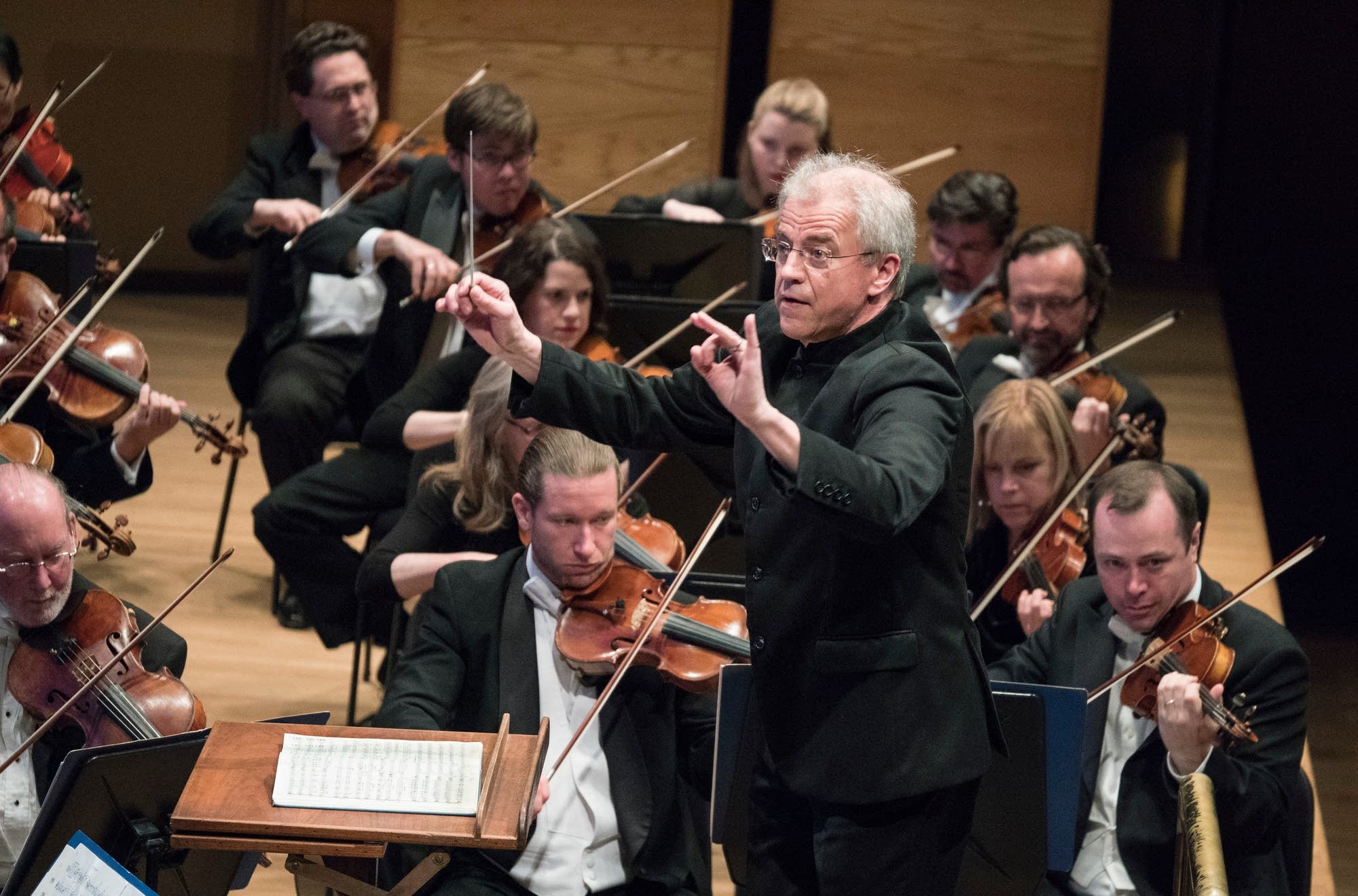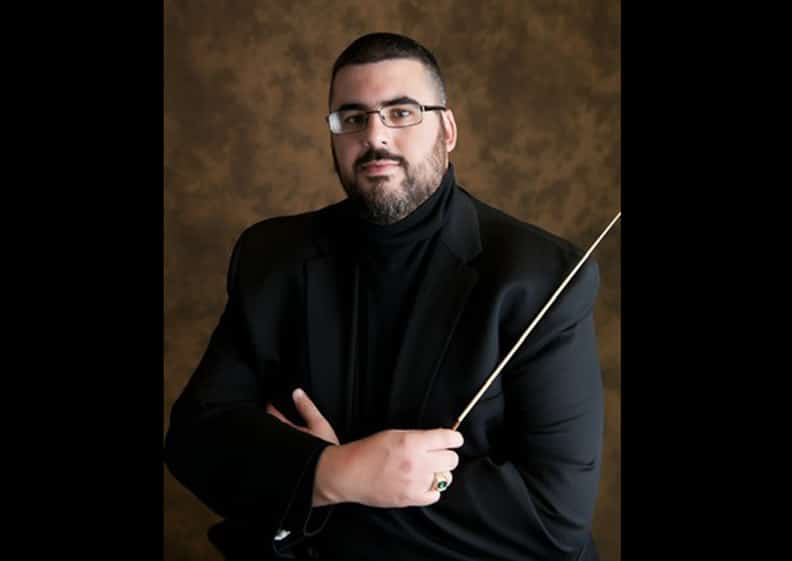Maestro pay: Less than you’d expect
mainOsmo Vänskä, who has given the last decade of his life to saving the Minnesota Orchestra got a 31 percent pay rise in 2016/17.
He earned all of $981,630, which still keeps him way out of the yacht-owning class and testifies to his admirable priorities.

Another maestro with much to his credit is Manfred Honeck at Pittsburgh. He was paid $978,542, some way off the top ten.
Are women getting equal pay? Apart from Marin Alsop, the only female conductor in the major league is JoAnn Falletta, music director of the Buffalo Philharmonic since 1999. She took home $352,500.
More here.





Chicago, LA and San Francisco stand out:
Muti: $ 2,716,488
Dudamel: $ 3,010,589
MTT: $ 2,492,623
I am suprised at Dudamel’s fee.
Can we take those numbers at face value, or do orchestras offer different benefits, such travel and accomodation?
From the link in the thread’s introduction…..
What The Numbers Don’t Show
It is important to remember that the numbers shown do not always convey a complete compensation picture. For example, a music director may have had a large increase in salary because they were leaving a position and per terms of their contract they may have received a sizeable severance or deferred compensation package. As such, the cumulative compensation may artificially inflate annual earnings. Furthermore, these figures may not reflect bonuses or other incentive payments, therefore underreporting what conductors may actually earn.
Also missing from the figures are expense accounts, lodging expenses, and other perks; as such, the cumulative compensation for music directors may or may not be more than what is listed. Additionally, the documents used to gather figures do not indicate how much of the season an individual received a salary. As such, excessive adjustments in the percentage change from the previous season’s compensation may be artificially adjusted. Although the music director compensation figures include the combined amounts reported as what the IRS classifies as Base Compensation, Bonus & Incentive Compensation, Other Reportable Compensation, Retirement And Other Deferred Compensation, and Nontaxable Benefits, each orchestra does not always report figures for the latter categories if paying the music director as an independent contractor.
Thank you. Many of us jump to comments before reading enough.
Reading all of this small print is akin to hearing those rapid-fire health warning disclaimers at the end of pharmaceutical commercials.
Or as Roseanne Roseannadanna famously used to say … “Never mind.”
Actually, the 990 should provide a complete compensation picture — it’s supposed to include all compensation that is on an employee’s W2 (as your italicized comments note).
If you an orchestra leaves anything off, the IRS is going to know because it’s on the W2. And if something is not on the W2, then that’s tax evasion.
Now it wouldn’t shock me if a board member provides free housing to conductors and calls that a gift.
Perhaps Muti, Dudamel and MTT get paid by for each note conducted….?
I ask myself this wicked question as years ago, the strings of the Bonn Beethoven Halle Orchestra demanded – I kid thee not! – compensation for each note played. Needless to say the guy who played the triangle was not amused… The string players’ demands were successfully rebuffed.
Maybe the three maestri have to deal with the very high cost of living in the places where they are Music Director…? That’s a wicked question, too…
San Francisco is more expensive than Los Angeles. Chicago is significantly less expensive than LA. So Dudamel’s fee really seems to stand out.
Edgar,
Could they demand more money for playing fortissimo rather than piano? And what about note length?
Watching Gianandrea Noseda take hold in Washington over the past two years has reminded me of how much effect a maestro can have on the ‘health’ of an orchestra. The maestro myth is a myth, but it can be a real force. (P.S. It also helps to have a force like Deborah Rutter behind the force.)
Virginia is only paying JoAnn Falleta $159,000.
Honeck is a bargain for Pittsburgh, by any measure.
It was two years ago and Osmo may have been paid more since. But $978k isn’t poverty wages. Between that, guest conducting, and his spouse’s presumably healthy salary as concertmaster, they’re doing ok.
I don’t really object to conductor pay levels. People may talk about incompetent conductors, but it takes a lot to stand in front of 100 highly-trained musicians and think you can lead them through preparation and execution of a performance. Not a lot of people can do that. Plus, there’s no job security.
Isn’t it time to bring an end to ‘hero worship’ when it comes to conductors, at least in terms of compensation? Orchestras know all the standard repertoire forwards and backwards. New works? . . . no one knows and few care. I’m not against conductors getting paid. It’s just that we’re living in a time where these institutions face huge financial challenges. I do like Dudamel and I know the L.A. Phil. has a healthy endowment. But really, is ‘the Dude’ worth 3 mill’ per as a conductor? Do you consider Muti worth 2.7 mill’? . . . . yes, yes, I know, ball players get paid many times greater sums of money. But those enterprises are seldom ‘financially challenged’ and don’t have to go begging for money. It seems to me that orchestras need to stop catering to the lowest common denominator, stand up to these agents and take chances on up-and-coming yet PROVEN talent that is willing to work for less. Most anybody should be able to live comfortably on, let’s say, $350,000.
Barry, if you look closely, you’ll see that many major sports teams don’t exactly go begging for money — they extort it! “You need to build us a new stadium or we’ll pack up our team and go elsewhere” is a frequent tactic employed. The politicians frequently reward this sort of behavior.
Your comments about sports teams is only true in the US. In England, Tottenham Hotspur had to pay a Billion POUNDS to build their own stadium, which compulsorily had to be built in Tottenham (teams are not allowed to change location). And on top, they had to pay to improve the local metro stations.
You are obviously completely correct. Musicians and conductors in the big orchestras are making way more money than the institutions can support. The sad thing is, the musicians in most of these groups seem more interested in the health of their own finances than the health of the orchestra’s.
“Is the Dude worth 3 mil?” Yeah he is. He is maybe THE biggest name out there among younger conductors and the LA is one of the healthiest orchestras in the world financially.
Barry: London orchestras more-or-less adopt this policy since they can’t compete on salary. Sometimes even older conductors are happy to agree to become chief conductor since the one thing the London orchestras offer is freedom to choose the repertoire (hence it is musically much more interesting).
MTT could easily be spending $100,000 a month just for rent in San Francisco.
Then perhaps he should consider renting somewhere a bit cheaper.
Spare us the concern over inequity. They work hard and have accomplished much, they deserve the pay. MTT raised the level of that orchestra astronomically, as well as their budget. The musicians are well paid. It’s the executives that are cause for concern. And cause for concern are the people who go into classical music to make the most money they can. Hacks.
I won’t argue about pay, but how much did MTT really raise to level of the SFSO? How were they doing under Blomstedt?
Honeck looks like good value….
Why are *any* conductors making anything near $1 million a year is the real question.
Even at the lower end of these scales these are not poverty wages.
Dudamel 300 000 for musical talent, 2 700 000 for hair care.